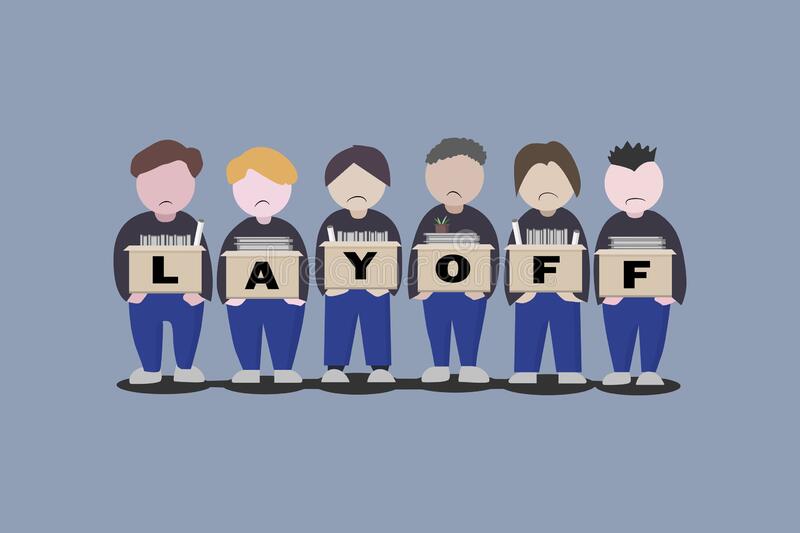This year, many start-ups have come under fire for mass-layoffs. Many businesses ran out of funds as banks around the world tightened their monetary policy. In a bid to please their investors and cut-costs many start-ups had to downsize and cut their workforce by half. For various reasons such as automation, cost-cutting, organizational restructuring etc. about 43,399 employees have been laid-off by start-ups around the world since April. Shockingly over 13% of these start-ups were from India.
Letting go of employees is always a difficult decision. Layoffs wreak havoc on the employee morale and productivity. It also takes a toll on the organizational culture. Multiple layoffs cultivate a culture low on trust and high on stress. It also creates a very demoralized staff as employees feel that they matter very little in the grand scheme of things and can be disposed of at any time.
Saying goodbye to some of your employees may be inevitable, but that need not spell a lasting damage to your company culture or employee morale. While the trust your remaining employees have in the organization will indeed take a hit, it can be regained, if you prioritize boosting employee morale.
Allow employees to process the news
The post- layoff period should be handled with due sensitivity and empathy. For many employers, cutting down job roles that have become redundant may be just another business decision. But for your staff, this is nothing short of a catastrophe. Give them some time to come to terms with their new reality.
Whether you like it or not, the news that some of their colleagues have been laid off will have a dampening effect on the mood of your staff. Here are some suggestions you can implement to boost employee morale in this crucial period:
- Over communicate in the first few weeks after a mass layoff. Let employees know that you are there to answer their queries. Being kept in the dark about why the layoffs occurred and if there will be another large-scale sacking in the near future can bring down employee morale to the rock-bottom.
- Be authentic. State the facts that led to this management decision, be clear about the financial and strategic impact of the decision.
- Arrange one-on-one meetings with your staff. Address their queries and fears to the best of your ability.
- Explain to your remaining staff where and how they fit into your organization’s future. Mention where you see them within five years.
Make the layoff process as painless as possible
Lay-offs may be necessary, but it does not mean you need to burn bridges. Invest in making the layoff process as humane as possible. For example, when eBay found out that it had to lay off 10% of its workforce, it gave a period of four months and informed the out-going workers that they have the power to decide when they want to leave – in the first month or after four months. eBay continued with all the compensation and benefits till the time the employees left.
Moral of the story -lay-off process should be approached with empathy and compassion. This will help in boosting the morale of the employees that remain.
Focus on Talent Development
A lot of times, lack of core skills or knowledge is the main reason why some employees are let go. If a company is restructuring, many old-time employees who are out of touch with the new-skills in the market, or who cannot take on additional duties due to lack of knowledge/experience are asked to resign.
If skill deficits is the culprit, then surviving employees should be assured that they will be provided training so that they can acquire the skills that are needed urgently.
- Ask the line manager to interact with the employees and help them improve their on-the-job performance.
- Providing adequate training opportunities can be a great way to boost employee morale, as it assures the workforce that you are interested in a long term relationship with them, and help them develop skills that helps them remain indispensable to the organization in the long term.
Provide Psychological Support
Remaining employees often suffer from ‘survivor’s guilt’. According to psychologists, survivor’s guilt or survivor’s syndrome is a post-traumatic stress disorder when a person survives a traumatic event but others don’t like accidents, natural disasters etc. The victim feels as if they have done something wrong and do not deserve the fresh lease of life.
Mass termination of jobs is no doubt a traumatic event for employees that can lead to some workers developing survivor’s syndrome. Watch out for some symptoms such as:
- A growing distrust in the company. Layoffs can really shake an employee’s faith in their company. When you watch multiple co-workers leave, your sense of loyalty to the organization is bound to diminish.
- Decreased productivity. Mass-layoffs create an environment of uncertainty. In such circumstances self-preservation may become the number one priority of your remaining staff. Instead of focusing on tasks, they may spend time updating resumes and LinkedIn profiles, look for a more stable company.
How to boost the morale of employees suffering from survivor’s guilt?
- Arrange psychological support for the survivors. You can invite psychological experts to your office premises for a special class or arrange remote mindfulness sessions for those who are working from home.
- Provide meditation, yoga classes for employees.
- Invite staff for breakfast hangouts and coffee breaks to promote a feeling of community. An assurance that you have their back will go a long way in boosting morale of the employee.
Be Generous When Praising Your Current Team
Layoffs leave behind a vacuum. Remaining employees are usually expected to take on unfinished projects left by the former workers, learn new skills. Acknowledge the struggle they are facing and be generous while praising your employees.
Many will be reluctant to disclose any difficulties they are facing when they feel they are lucky to have a job at all. Let your employees know they can come and talk to you, if they are having misgivings about the increased workload or feel they should be provided with training.
Encourage Cross-Departmental Collaboration
A sudden loss of team members may make employees feel as if they have lost sources of support or help. Remaining staff, especially those who are expected to handle additional responsibilities will need help from colleagues who have experience/knowledge. In such circumstances employers should promote cross-departmental collaboration so that your workers have access to help whenever they need it.
Promote a Learning –Centric Culture
Employees tend to be afraid of making mistakes while on-the-job. Errors are usually heavily penalized in corporate culture. Rather than demonizing workers who commit mistakes, create an environment where employees will be confident to own up to their errors and learn from it.
The goal should not be to prevent errors but to treat each mistake as a learning opportunity. The staff will be expected to take up additional tasks at least for the time being. Providing them with the necessary support system to fall back upon will go a long way in boosting employee morale.

